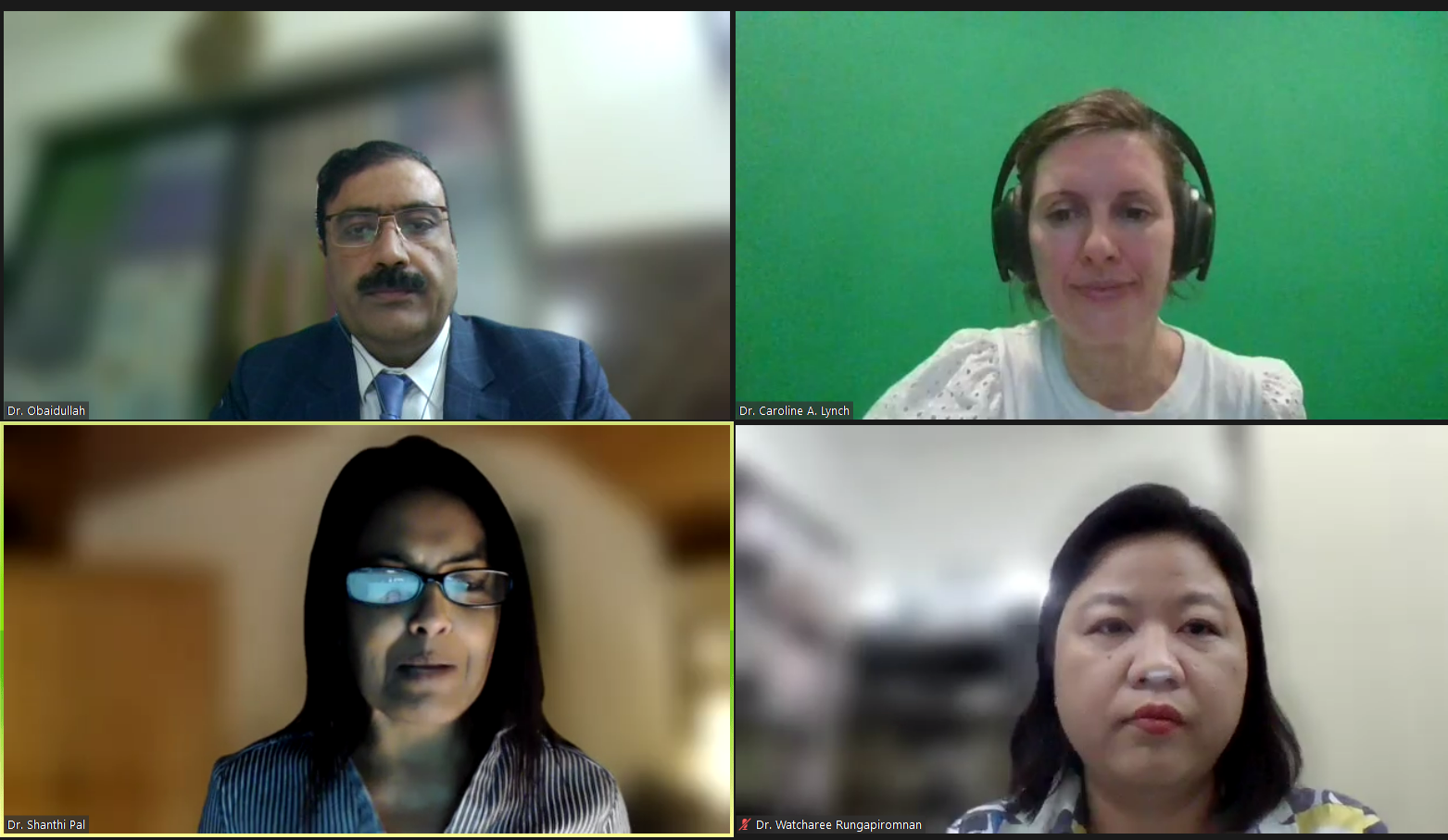
Pharmacovigilance is the cornerstone of drug safety. It helps to ensure that the drugs approved for use are safe, effective, and reliable. To this end, countries have developed a range of national pharmacovigilance systems that provide information on adverse events, drug efficacy, safety issues, and drug interactions. However, the pharmacovigilance of antimalarial drugs remains limited in the Asia Pacific region. Thus, improving the pharmacovigilance system would increase the confidence of national malaria programs and ministries of health in detecting adverse effects when introducing new antimalarial drugs and enhancing surveillance of current treatment regimens.
Pharmacovigilance system strengthening has been identified as a key priority to support vivax malaria elimination by the national malaria programs (NMPs) from the Asia Pacific countries. The NMPs' priorities were obtained through an extensive prioritization framework survey conducted by the APMEN Vivax Working Group, the preliminary results of which were presented at the ASTMH annual meeting 2022 in Seattle, USA, by Dr. Caroline Lynch, the co-chair of APMEN VxWG and Regional advisor for MMV (Attached poster below).
On 7th November 2022, the APMEN VxWG organized an APMEN TechTalks webinar to address this issue further. A panel of experts from the World Health Organization (WHO), Thailand Food and Drug Administration (Thai FDA), and Drug Regulatory Authority of Pakistan (DRAP) discussed how pharmacovigilance of antimalarial drugs could be strengthened and integrated into research and routine public health systems. Moderated by Dr. Caroline Lynch, this webinar provided a synopsis of the challenges and opportunities associated with pharmacovigilance and insights into how these can be leveraged for malaria elimination.
The panelists included:
- Dr. Shanthi Pal, the team lead for pharmacovigilance at the WHO, Geneva. Dr. Pal gave an overview of pharmacovigilance and emphasized applying smart principles to focus efforts on assessed pharmacovigilance gaps and commensurate with the available resources.
- Dr. Watcharee Rungapiromnan, pharmacist, professional level, at the Thai FDA’s Health Product Vigilance Center (HPVC). Dr. Rungapiromnan elaborated on how the HPVC has integrated adverse events reporting into an ongoing feasibility study on G6PD near-patient tests and tafenoquine in Thailand.
- Dr. Obaidullah, the Director of the Drug Regulatory Authority of Pakistan. Dr. Obaidullah gave a brief account of pharmacovigilance in the public health system of Pakistan and its coordination with the malaria program.
Altogether, there were 229 registrations from 51 countries for this event, of which 85 individuals from 28 countries attended the webinar. Dr. Lynch concluded the techtalk by highlighting the need for coordinated efforts to improve the current state of pharmacovigilance of antimalarial drugs in Asia Pacific countries as
“An enormous amount of coordination or more coordination between the disease programs and pharmacovigilance units is needed, and a lot has to be thought through to pull the pharmacovigilance down to the different levels of the health system to ensure confidence in the drugs that we are using and also patient safety.”
The video recording of the TechTalks webinar is available on YouTube. Please see the attached document to find the answers to the questions not posed live to the panel speakers due to time insufficiency. A list of resources on pharmacovigilance from the WHO can also be downloaded below.
- ASTMH poster_What needs to be done to address vivax malaria in the Asia Pacific.pdf389.08 KB
- APMEN TechTalks_Pharmacovigiliance_Q&A.pdf142.23 KB
- WHO_Pharmacovigilance Indicators_Practical Manual for Assessment.pdf668.58 KB
- WHO_Pratical Handbook on Pharmacovigilance of Antimalarial Medicines.pdf1.41 MB
- WHO_The Safety of Medicines in Public Health Programmes.pdf578.47 KB
